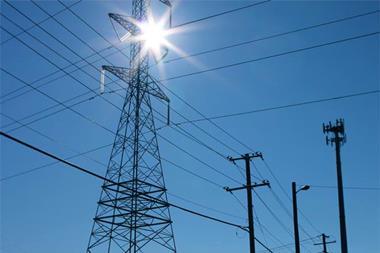Development of a voluntary carbon market is essential to keeping global temperature increases below 2°C
The Climate Change Scorecard, developed by Zurich Insurance, shows that in 2022 the world is further from its goal to keep global temperature rise below 2°C than in previous years.
Russia’s war on Ukraine has thrust the issue of energy security to the top of the political agenda at the expense of energy transition.
In the short term, countries are putting on hold their energy transition plans and the goal of limiting global warming to under 2°C. This could exacerbate climate change.
Carbon market essential
The fast-growing voluntary carbon market could play a more significant positive role with regard to climate change.
However, this would require a common metric to credibly demonstrate the additional impact of well-designed – and more expensive – projects that absorb carbon for the long term while providing benefits to nature and local communities.
Nature contributes substantially to climate change mitigation by absorbing and storing vast stocks of carbon.
Stephan Van Vliet, Group chief investment officer, said: “Nature-based solutions can provide significant amount of the emission reductions needed to keep global temperature increases under 2°C, though this would require investment to triple.
“As a large investor and global risk manager – and a founding member of the Net-Zero Asset Owner Alliance and Insurance Alliance – we want to see the development of a robust and credible voluntary carbon market.
“Incorporating a metric on the wider impact of projects on nature can be supportive as there are huge potential benefits for nature and society in supporting nature-based carbon sequestration projects that also enhance biodiversity.”
Need for biodiversity metrics
Given the urgency of meeting net-zero targets, the central role of biodiversity in supporting climate mitigation efforts, and the need to mobilise the private sector to regenerate ecosystems, the alignment of the voluntary carbon market with biodiversity is of utmost importance, according to Zurich.
But the insurer also recognises the very real risks of valuing one aspect of nature – carbon – more highly than any others, and the absolute need to promote the full biocomplexity of ecosystems to promote planetary health and resilience.
A globally agreed biodiversity metric that can be readily integrated into carbon projects is key to transforming the voluntary carbon market into a driver of positive outcome for biodiversity.
Alison Martin, CEO EMEA and Bank Distribution: “Business, governments, scientists and NGOs need to collaborate to fast-track the development of a globally agreed biodiversity metric that can be readily integrated into carbon projects.
”This is key to transforming the voluntary carbon market into a driver of positive outcome for biodiversity and to further operationalise the link between carbon offset projects and biodiversity.”




















No comments yet